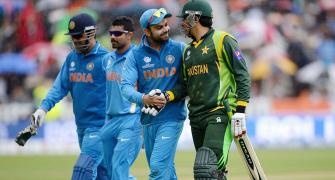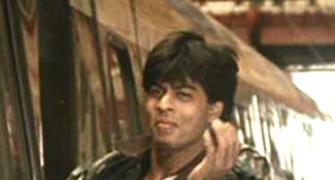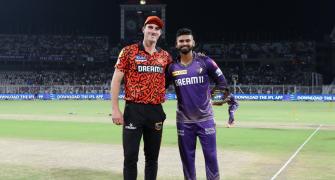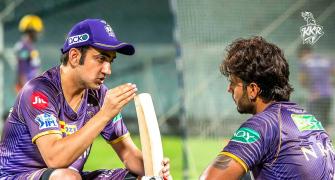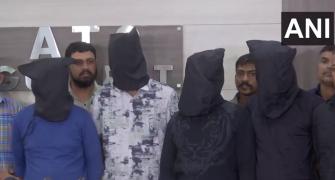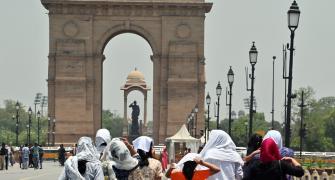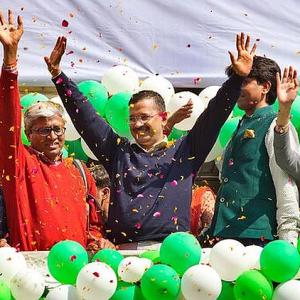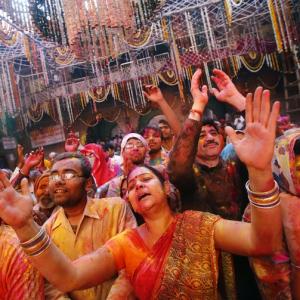
The BJP's defeat in Delhi could turn into a larger national swing, but Prime Minister Modi and his party have enough time to tweak the party's policy agenda and project a more humble, secular, inclusive image, say Ravi Agrawal and Harmeet Shah Singh
In the past few weeks the word "chemistry" has been much in vogue in India's capital. The branch of science is often invoked to describe Prime Minister Narendra Modi's easy, visible bonding with a wide spectrum of Indians: from the poorest to the CEOs of the country's biggest companies.
This week New Delhi will be talking about a very different scientific discipline: physics. After all, what goes up must come down.
Since winning a broad mandate in national elections last May, and then repeating the feat in state elections across the country, India's ruling Bharatiya Janata Party has suffered a rude shock in Delhi's state elections.
The victor is a fairly new political venture, the Aam Aadmi or "Common Man" Party, which has won more than 90 per cent of the seats in Delhi's legislature. AAP is led by Arvind Kejriwal, who has campaigned on a promise to fight graft and lower the prices of food, water, and electricity. Kejriwal will be Delhi's chief minister, the equivalent of a state governor in the United States.
The Delhi vote was for a new, maverick leader, but it will also be seen as a vote against India's prime minister and his party. Modi's BJP pulled out all the stops in the past few weeks, with almost daily speeches by its top names. Modi himself campaigned every day last week across New Delhi.
One criticism of Modi came not on policy but from a sartorial choice: his suit when he met United States President Obama in January. Modi's pinstripes bore his name written hundreds of times in micro-print across his suit. The outfit reportedly cost $18,000 (Rs 11,22,000 approx) -- about 10 times the average annual income in India -- and came in for much criticism.
"I don't think India's prime minister needs to be seen as a fashion icon," noted analyst Shekhar Gupta on an Indian TV talk show early Tuesday, as the results in Delhi began to come in.
Voters CNN spoke to said Modi looked out of touch with reality, and indeed, out of touch with his own humble roots as a tea-seller.
Other voters said they were bothered by recent controversial statements from top BJP officials. One senior party lawmaker, for example, encouraged Hindu women to bear more children, ostensibly to grow India's Hindu masses faster than its Muslim population. Those comments come off the back of clashes and reports of forced conversions of Muslims to Hinduism.
"A cosmopolitan city like New Delhi has rejected divisive rhetoric," said Arati Jerath, a political commentator in the nation's capital. "It's a strong message to the BJP."
On India's numerous 24-hour TV news channels, the reaction has been one of shock and surprise.
Prannoy Roy, a trained psephologist -- the scientific study of elections -- and the lead anchor of New Delhi Television, called it a revolution. "I've never seen anything like this in Indian electoral history," he said. "This could be a turning point in Indian politics."
Roy was referring to the stunning ascent of the AAP, and the possibility of smaller parties rising to the fore across India.
Traditionally, in Indian politics, the party which rules the country also rules the state of Delhi. The BJP's loss is a surprising early rebuke of its recent performance. The Congress meanwhile -- India's oldest political party -- has crumbled. It did not win a single seat in Delhi's legislature.
The BJP's loss in Delhi could turn into a larger national swing, but Modi and his party will be gratified to remember there are no more state elections scheduled until November. That is enough time to tweak the party's policy agenda and perhaps project a more humble, secular, and inclusive image.
Ultimately Modi will be judged on what has long been issue #1 for Indians: the economy.
New GDP numbers released Monday project India to grow at 7.4 per cent in 2015. That will make India the fastest growing big economy in the world.
Given Delhi's results, Modi will look to examine why his party lost Delhi's lower and middle classes to a leftist political upstart. At the last national election in May, Modi and his BJP party swept the national vote by focusing not only on the economy but also on cleaning up India's corrupt bureaucracy. In making anti-corruption a top campaign agenda, the BJP cleverly co-opted the AAP's national platform. The BJP won a large mandate; the AAP barely registered.
To win Indians over in the coming months, the BJP will likely need to once again take note of the AAP's appeal.
An immediate test for Modi will be his government's national budget, presented on February 28. The BJP has said it is set to announce major reforms to unleash manufacturing and to make doing business easier.
Promising a reform agenda has made Modi a darling of global investors; now he'll need to make sure he doesn't forget about India's poor.
Ravi Agrawal, CNN’s New Delhi bureau chief and Harmeet Shah Singh, associate producer, CNN.
Image: Prime Minister Narendra Modi sharing a word with Delhi BJP President Satish Upadhyay and CM candidate Kiran Bedi during an election rally at Ambedkar Nagar in New Delhi. Photograph: PTI Photo


